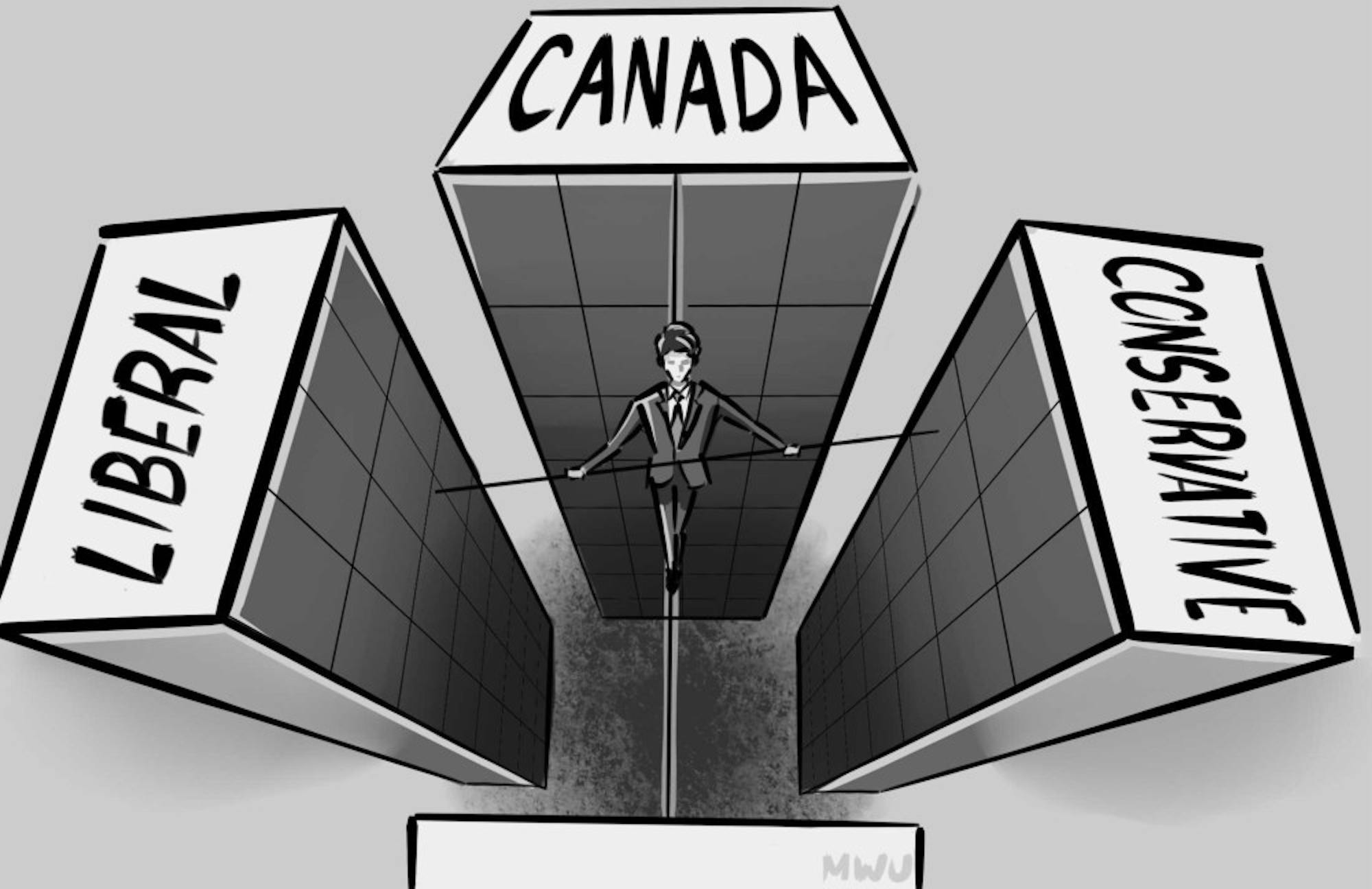Canadian Prime Minister Justin Trudeau called an early election barely two years into his term on Aug. 15. Trudeau triggered this snap election in the hopes of winning a majority in the House of Commons, thus regaining the party majority which was denied him in the 2019 election.Deputy Prime Minister and Finance Director Chrystia Freeland cited the increasingly discordant views of the Prime Minister and the House of Commons as a key difficulty in reaching consensus on COVID-19 policies.
Although election polls initially favored Trudeau’s Liberal Party, public support for Trudeau began to falter by the second day of the election. The public expressed frustration at Trudeau’s decision to call the snap election during the waning months of the summer at a time when the country was still coping with the COVID-19 pandemic. Trudeau’s polling numbers continued to fluctuate — in comparison to those of conservative opponent Erin O’Toole — throughout the weeks leading up to election day on Sept. 20.
On Sept. 21, it was announced that Prime Minister Justin Trudeau was reelected although he failed to acquire the majority he sought in the House of Commons. Despite Trudeau’s victory, both the rhetoric on the campaign trail as well as the demographic results of the election have sparked concern for many who see a trend of increased polarization within Canada’s political sphere.
Throughout the months of August and September, discourse among voters and candidates carried a tone reminiscent of recent controversial and polarizing conversations within U.S. politics.
In one speech, conservative candidate O’Toole criticized Trudeau and his decision to call the snap election, describing it as a “$600-million power grab” and accusing Trudeau of being “privileged, entitled, and always looking out for number one.” When speaking at a liberal policy convention, Trudeau claimed that O’Toole and his party are disconnected from the people, incapable of grasping “the real challenges people face.” The weeks along the campaign trail were marked by a continued exchange of attacks directed at each party.
This year’s election results also showed a deepened divide between rural and urban communities. The final counts released after the Sept. 20 election indicated strong preferences for Liberal Party candidates in urban areas and Conservative Party candidates in rural areas. Allan Thompson, head of the journalism program at Carleton University in Ottawa, Ontario, voiced concerns that political parties were making little effort to win the support of areas and demographics that they deem “unwinnable,” propelling this division into “a self-fulfilling prophecy.”
This heightened tension between parties could lead to dangerous political tactics by Canadian politicians. Notisha Massaquoi, assistant professor of health and society at the University of Toronto, who is also a Black community activist, expressed her fear that future Canadian governments may use contentious issues like race and COVID-19 to mobilize voter bases in divisive ways. Although polarization in Canada may not have reached the levels seen in the U.S., many fear that Canada may be on a similar trajectory.
Toronto native Vivian Tran, a dual-degree Tufts student in the Class of 2025, expressed her concerns about the future of the country’s political polarization.
“I don't think Canadian politics [are] as polarized as the US, with multiple parties in the election," Tran wrote in an email to the Daily. "I think there is a growing trend towards polarization though, since it's always coming down to Liberals and Conservatives."
Tran elaborated about the ways in which polarization had drawn attention away from other important issues, including climate change, reconciliation for Indigenous populations and First People communities and the housing crisis.
“If the conversation is always surrounding two parties, then we close our eyes to the possibility of change,” Tran said, echoing the concerns of many other Canadians as they witness the political events of the past few years unfold.
As countries begin to see rises in political tension and division, the future of legislation and coherence of both national and international politics may be under threat. Individuals at every level of political involvement must consider the factors of life that lead to such ardently opposed viewpoints: increasing class divides, tension stemming from racial injustices or miscommunication and misinformation. Without understanding the foundation of divisive political landscapes, there exists little groundwork upon which to successfully navigate the turmoil that is yet to come.






